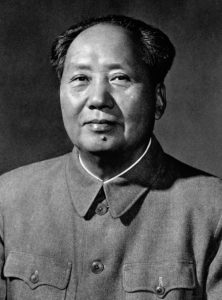In an editorial entitled “China’s Ill-Timed Attack on the Free Press,” the New York Times berates the Chinese government for expelling journalists who work for the Times, the Wall Street Journal, and the Washington Post and for also demanding detailed information from the Voice of America and Time magazine about their operations in China.
China’s action comes in retaliation for the U.S. government’s decision to limit the number of Chinese citizens in the United States who work for five Chinese state-owned media outlets. The Times calls China’s decision to retaliate an “unfortunate echo of the Cold War.”
In its editorial, the Times emphasizes that U.S. media are different from Chinese media in that the former are privately owned and independent, while the Chinese media are state owned and controlled by the Chinese government. Quoting U.S. Secretary of State and former CIA Director Mike Pompeo, the Times argues that China’s action “isn’t apples to apples.”
But while American media outlets are not directly owned and controlled by the U.S. government, the Chinese government could be forgiven for concluding that many of such outlets oftentimes have a proclivity to take the side of the U.S. government in international disputes.
No where in the Times’s editorial does it criticize the U.S. government for its decision to cap the number of Chinese citizens working for those media outlets. Why not? What business does the U.S. government have in setting that cap? Who cares how many Chinese citizens are in the United States working for state-owned media?
The Reds are coming! (again)
The Times implicitly justifies the U.S. government’s conduct by saying that sometimes those Chinese citizens consist of “spies.” Oh, no! Not spies! You mean, as in communist spies! Oh my gosh! How scary is that! The Reds are coming to get us, again, just like during the Cold War, when there was, we were told, an international communist conspiracy based in Moscow, Russia, (yes, that Russia) to take over America and the rest of the world!
I wonder what secret information those Chinese spies are gathering. Maybe they are getting secret information about the brutal sanctions that the U.S. government is enforcing against the people of Iran and North Korea. Or maybe they are gathering information about U.S. government plans to indict more Chinese citizens for violating those brutal sanctions.
Operation Mockingbird
Surely, the Times is familiar with Operation Mockingbird, the U.S. government program to plant intelligence assets within the mainstream press, a program that U.S. mainstream journalists willingly and eagerly cooperated with by becoming secret, patriotic U.S. agents while purporting to be independent journalists.
Oh, sure, after the secret program was exposed, the U.S. government promised not to do it again, but one might forgive the Chinese government if it failed to put much credence in such promises. After all, the U.S. government has been known to lie in the interests of “national security.” Indeed, wasn’t it just 10 years ago that the U.S. government was caught paying “independent” journalists for writing commentary for the U.S. government’s own state-owned media outlet, Radio Martí?
U.S. socialism
In fact, an amusing part of the Times editorial was its reference to the Voice of America. Acknowledging that that particular media outlet is a “U.S. agency funded by Congress,” the Times pointed out that “its charter requires it to disseminate ‘accurate, balanced and comprehensive news and information.” Well, that should put everyone’s mind at ease. You know, sort of like the U.S. government’s other state-owned media outlet, Radio Martí, whose daily broadcasts about communism and Cuba are clearly another “unfortunate echo of the Cold War.”
I can’t help but think though that if the charters of those Chinese state-owned media outlets said the same thing as the charters of Voice of America and Radio Martí, the Times might take a more skeptical view of them.
In fact, I can’t help but wonder why the Times failed to condemn the U.S. government’s socialist ownership of media. By remaining silent on that point, isn’t there a danger that the Chinese government could conclude that Times is serving as a self-designated apologist for the U.S. government and its socialist programs?
Winning credibility
Moreover, the fact that the Times accuses the Chinese government of “attacking” is itself somewhat odd. It seems pretty clear to me that the fight was started by the U.S. government when it decreed that cap on the number of Chinese citizens who could be in the United States. Under standard usage of language, since when is retaliation for an attack considered an attack itself?
If the Times wants to stay in China, maybe a good way to win some credibility is to publish an editorial calling on the U.S. government to rescind its ridiculous, paranoid cap on the number of Chinese state-owned media people working in the United States. At the same time, the editorial could condemn the socialist concept of state-owned media by both the U.S. government and the Chinese government. The editorial could also call on the U.S. government to end its attacks on China by lifting its sanctions on the Chinese people, end its criminal prosecution of Chinese business executive Meng Wanzhou for supposedly violating U.S. sanctions on Iran, and end its immoral and destructive trade war against China.
For that matter, maybe the Times could also, at the same time, call on the U.S. government to end its never-ending attacks on communist Cuba by lifting its brutal, destructive, and paranoid decades-old embargo against the Cuban people, clearly another “unfortunate echo of the Cold War.”




